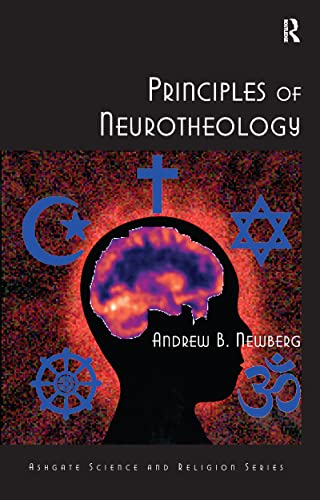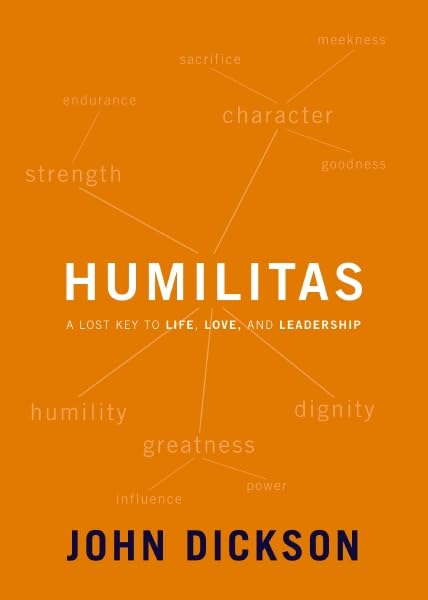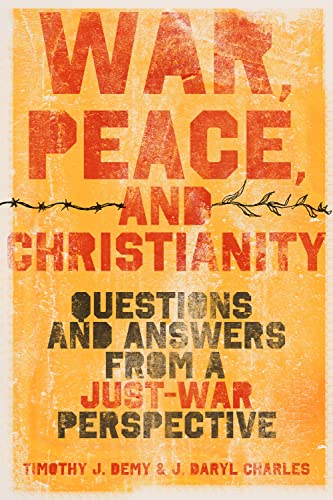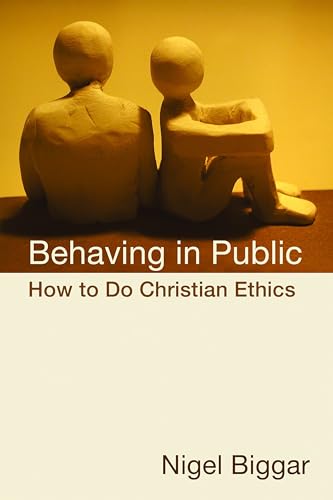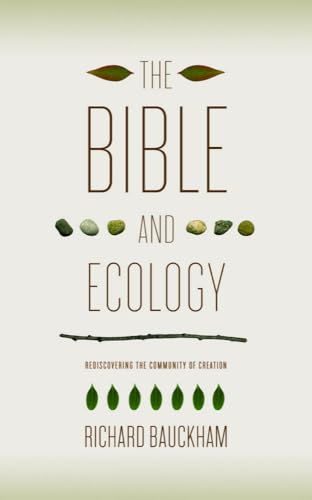Politics—According to the Bible: A Comprehensive Resource for Understanding Modern Political Issues
Written by Wayne Grudem Reviewed By Peter SanlonThis 600-page work robustly challenges those who imagine that preaching the gospel and living the Christian life can somehow be done in a cultural vacuum, hermetically sealed off from politics. Grudem argues for views on matters such as the protection of life, family, economics, the environment, defence, and foreign policy. He correctly states that a Bible-teaching ministry which proclaims the whole counsel of God 'should teach, over time, on all areas of life and all areas of Bible knowledge. That certainly must include, to some extent, what the Bible says about the purposes of civil government and how that teaching should apply to our situations today' (p. 53). Failure to do that in many European evangelical churches has surely made our claims that the gospel is relevant to all of life sound hollow. It has lessened our ability to show love to other people and weakened the avenues of communication which permit evangelism and restrain persecution. That central challenge from Grudem's book is much needed in Europe, and it is because of our need to hear his message that this review offers some critiques of Politics—According to the Bible.
Part One of Politics gives Grudem's principles. These include rejecting five wrong views of Christians' relationships to government and outlines of what Grudem thinks the role American courts play in shaping citizens' lives. Part Two covers specific issues, ranging from protection of life to family life, the environment and National Defence. Part Three is a series of chapters looking at media bias and the difference between Republican and Democrat approaches to political matters.
Political debates are often personalised and polemical. To minimise the risk of that and any potential misunderstandings, it helps to know something of where I am coming from before offering my critique. Though I am British, I have American family and frequently visit the USA to preach and vacation. The USA is generally much more right-wing politically than the UK and Europe, a point well-documented in Micklethwait and Wooldridge's The Right Nation (2004). Grudem's political views may (not unfairly, I believe) be described as right-wing small government/libertarian. Chapter 17 of Politics compares Democrat with Republican policy in twelve areas, stating at each point why the Republican approach is more biblical. Surprisingly, and perhaps helpfully from the point of view of this review, I personally have great sympathy for many of the policy recommendations Grudem makes. My own political views lean towards the right and libertarianism, which views are perhaps widely held by British people, but tend to not be discussed very openly, and are suppressed in our media, which is influenced by government at various levels. I have had many a heated debate at a dinner party in which I defended points made by Grudem in Politics. My experience has also included modest involvement in seeking to contribute to political life: I have been a political speech writer, penning speeches read in the House of Lords. In that role I had opportunity to observe inner workings of the British political establishment and spoke with Christians and non-Christians seeking influence for their views. I should also declare that I am on the editorial board of one of the Christian groups (Cambridge Papers/Jubilee Centre) Grudem mentions at the start of Politics as offering an alternative approach to political matters (p. 17).
If Grudem's call for Christians to be politically engaged is much needed in Europe and if I agree with many of his political recommendations, why would I agree to offer a critique of what is by any standard a remarkably thorough and detailed book?
I do so because I fear that the book assumes a reductionistic view on the nature of the Bible and how we move from texts in it to the advocation of cultural change in a fallen world.
Repeatedly Grudem states a political view aligned with the libertarian right and then backs it up with a Bible verse. This is taken to demonstrate the said view as biblical. In his opening comments, Grudem appears to suggest that there are other political approaches which may be taken by Christians, but that is rapidly set aside; he repeatedly gives readers the impression that a plain reading of statistics or that accepting a phenomenon like 'growth' as good will lead to conclusions he reaches. Additional biblical support for Grudem's approach is offered in chapter 4, which gives a six-point summary of redemptive history. However, such a presentation is too general to demonstrate that any detailed political policy is wise or biblical. Neither proof-texting nor appeal to a simple Bible outline is adequate to commend any political policy on such complex matters as gun control, school vouchers, or immigration as 'biblical'.
Grudem tacitly admits that there is personal inculturated judgement mingled with his doctrinal conclusions. He states in his introduction that Politics includes (1) issues on which the Bible's teaching is 'clear, direct and decisive' and (2) matters on which he depends on 'arguments from broader principles' (p. 18). Additionally, there are areas where Grudem says he is making an 'appeal to facts in the world' (p. 19). In this way Grudem recognises degrees of certainty in his conclusions. However, this methodological section is still reductionistic, and has little influence upon the rest of the book.
Consider firstly areas where the Bible's teaching is clear and direct. The two examples Grudem gives in his introduction are that governments ought to punish evil and protect unborn children. These matters are treated in chapters 3 and 6, respectively. Now I agree that the Bible teaches what Grudem claims it teaches on these issues. However, moving from that reality to recommending actual specific political action is profoundly complex. Frankly, it is also going to be culture-dependent. What a wealthy American movie producer living in Hollywood can or ought to do about her nation's abortion laws will be very different to the drug-addicted prostitute living in an Indian slum city, to take two extreme examples. Grudem knows he writes as an American who loves his country, and he says, 'I am well aware that the Bible is not an American book'. Additionally, he says, 'In my examples and my choice of political issues, I focus primarily on the USA, because that is the country I know best, the country I am proud to be a citizen of, and the country I deeply love' (p. 16). However, after that early admission of bias, the book proceeds to assume that the views articulated are just what the title claims: 'Politics—According to the Bible'. This is frustrating for European readers because it suggests that the Bible is better understood and applied by (Republican) Americans. The genuinely valuable call to political engagement is needed in secular Europe, but is unlikely to be taken seriously by those many cultures which resent American hegemony. More humble realism about cultural bias and the complexity of applying truth from the Bible into the political sphere would have given this book a better hearing in Europe.
Grudem's hope is that simple statistical appeals to models based on American population growth and land use will convince readers that there is no necessary world population problem. So, for example, he observes, 'Nor does increasing population seem to change the total use of land in a nation very much' (p. 335). This might be true on one level for the USA, between 1945 and 1992, but the USA had unique geo-political particularities which set it apart from, say, India and Europe. A consequence of the irreducible complexity of social-political endeavors is why one cannot base analysis of, say, food shortages, on one statistical observation isolated from relevant factors such as history, culture, wars, weather, etc. Yet Grudem repeatedly does this, and in doing so can draw astonishingly simple, positive conclusions. Could it be that his premillennial convictions drive him to seek signs that political social problems are less complex and severe than they are? Though not discussed openly in Politics, there are hints that it is so. For example: 'I believe that such a restoration of the earth need not completely wait until Christ's return. . . . the redeeming work of Christ provides the basis for us even now to work incrementally toward the direction that God shows us to be his future good intention for the earth' (p. 324). One wonders how the efforts of non-Christians who do not know of Christ's redeeming work first into this scheme and whether premillennial ideas lead Grudem to marginalize matters such as common grace and interrelated social complexities.
When it comes to those areas which Grudem sees as more removed from the biblical text, one can see the author's political bias and cultural background dominate. Denying climate change, imagining economic progress will solve our problems, Malthusian population growth projections, assumptions about the death-penalty's deterrent power, border and gun controls—on issues such as these, Politics simply assumes that the Republican approach is biblical and that logical inferences from statistics taken off libertarian think-tank web pages will suffice. They will most certainly not convince people in secular Europe, and I have doubts even that they will do so in the USA. Could it be that the commendation on the back cover from George Bush's adviser, Marvin Olasky—'Grudem's biblically-based good sense overwhelms the nostrums of the evangelical left'—reveals that a work which fails to take account of complexities is doomed to merely shore up support from those who already agree with it?
I strongly agree with Grudem that the Bible is entirely true in everything it states. Further, the Bible speaks into all areas of human life. We desperately need to hear that in Europe. However, I believe that moving from doctrine to cultural application is much more nuanced than this book allows, especially in the realm of politics, nations, and social policy. Consideration of works by Oliver O'Donovan would have helped with methodology. The idea that power drips down from ideas to senior judges to laws to individuals is far from an accurate picture of reality, even of America. To Change the World (Oxford University Press, 2010) by James Davison Hunter is another work which makes that clear. It would be good if ministers spoke more about the Bible's teaching on cultural and political matters. But if such speaking commended only one political party in a democratic country, what would that do to the nature of the church as a diverse body of sinful people gathered round Jesus?
Politics represents not the Bible's view of politics, but a snapshot of late-American libertarian capitalist political philosophy. There is much I like about that political posture; it has contributed great good to the world. But it is far from free from the effects of sin and has contributed ill as well as good. Observing current international political and economic developments, we may need sombre, humble, self-aware, biblical guidance about how to live faithful Christian lives in the midst of political futures shaped by entirely different political realities.
Peter Sanlon
Peter Sanlon is writing a systematics theology PhD at Cambridge University on Augustine’s preaching. As an Anglican ordinand, he attempts to be involved in local church ministry alongside academic research. He edits the journal Still Deeper at www.stilldeeper.com. When possible he helps his wife restrain their pet kittens from eating their furniture.
Other Articles in this Issue
Evaluating a new English translation of the Bible can be extremely difficult...
In the November 2009 edition of Themelios, Dane C...
Jonathan Edwards (1703-1758) is remembered today as a saint, scholar, preacher, pastor, metaphysician, revival leader, theologian, Calvinist—the list goes on...
Almost two decades ago I wrote an essay titled " When Is Spirituality Spiritual? Reflections on Some Problems of Definition ...
He was the youngest son of elderly parents. His childhood was secluded and unhappy, which might in some measure account for his lifelong melancholy...



